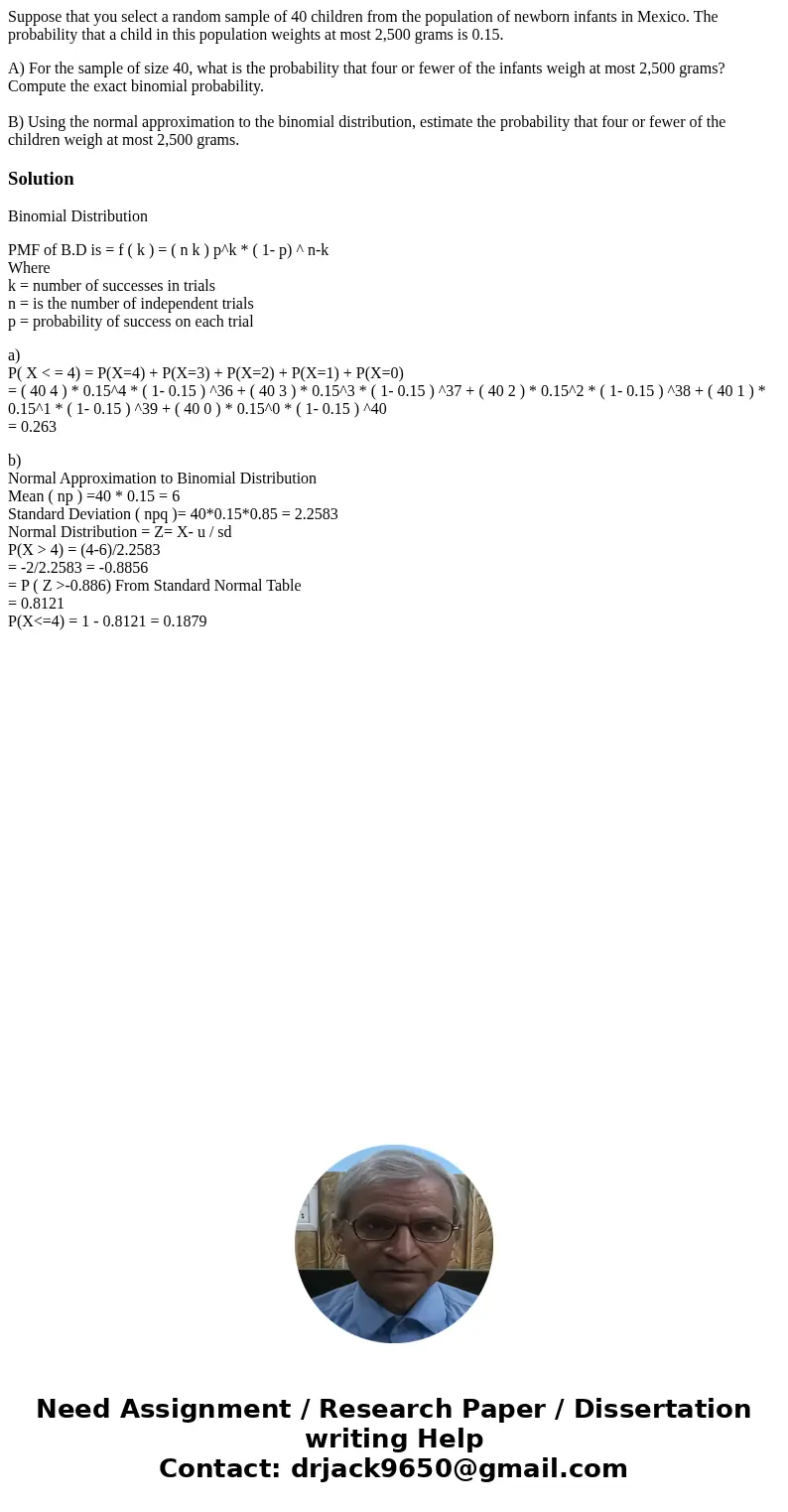Suppose that you select a random sample of 40 children from
Suppose that you select a random sample of 40 children from the population of newborn infants in Mexico. The probability that a child in this population weights at most 2,500 grams is 0.15.
A) For the sample of size 40, what is the probability that four or fewer of the infants weigh at most 2,500 grams? Compute the exact binomial probability.
B) Using the normal approximation to the binomial distribution, estimate the probability that four or fewer of the children weigh at most 2,500 grams.
Solution
Binomial Distribution
PMF of B.D is = f ( k ) = ( n k ) p^k * ( 1- p) ^ n-k
Where
k = number of successes in trials
n = is the number of independent trials
p = probability of success on each trial
a)
P( X < = 4) = P(X=4) + P(X=3) + P(X=2) + P(X=1) + P(X=0)
= ( 40 4 ) * 0.15^4 * ( 1- 0.15 ) ^36 + ( 40 3 ) * 0.15^3 * ( 1- 0.15 ) ^37 + ( 40 2 ) * 0.15^2 * ( 1- 0.15 ) ^38 + ( 40 1 ) * 0.15^1 * ( 1- 0.15 ) ^39 + ( 40 0 ) * 0.15^0 * ( 1- 0.15 ) ^40
= 0.263
b)
Normal Approximation to Binomial Distribution
Mean ( np ) =40 * 0.15 = 6
Standard Deviation ( npq )= 40*0.15*0.85 = 2.2583
Normal Distribution = Z= X- u / sd
P(X > 4) = (4-6)/2.2583
= -2/2.2583 = -0.8856
= P ( Z >-0.886) From Standard Normal Table
= 0.8121
P(X<=4) = 1 - 0.8121 = 0.1879

 Homework Sourse
Homework Sourse